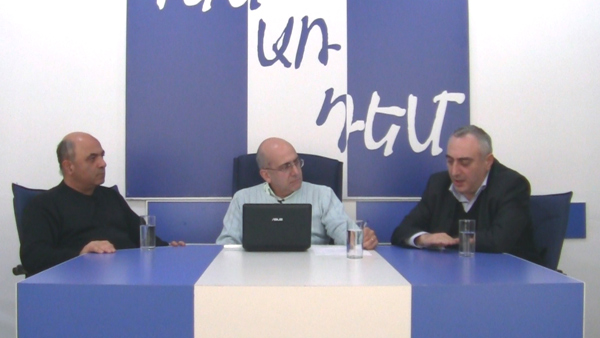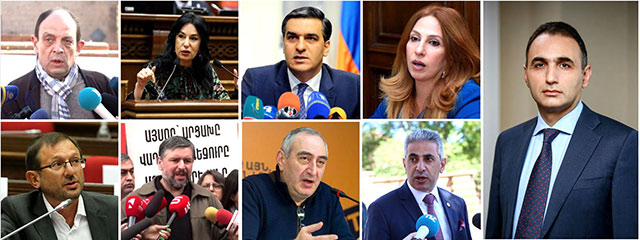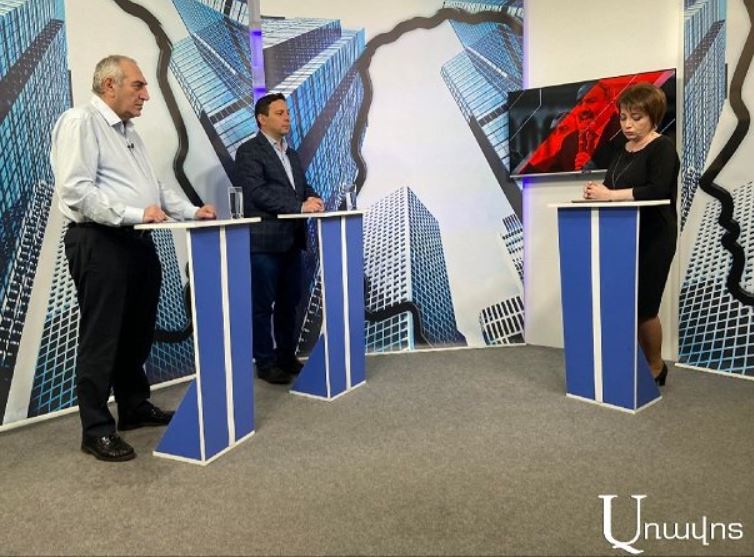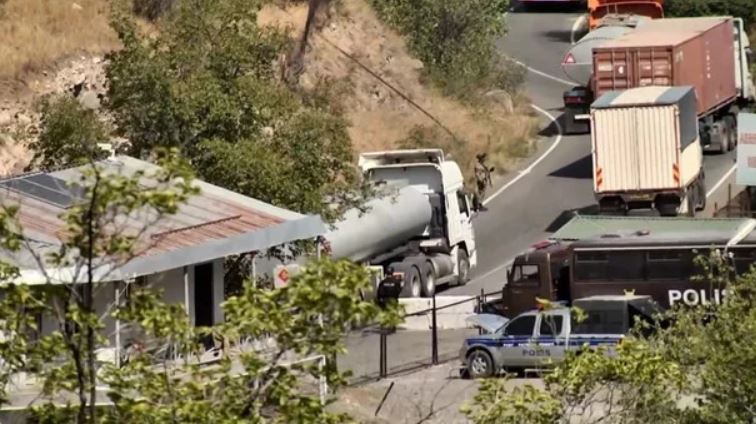The topic of “Face to Face” talk show of Aravot online is discussed between political scientist Yervand Bozoyan and political technologist Karen Kocharyan.
Aram Abrahamyan – Can we say that the recent PAP-ARF and PAP-ANC meetings and expected PAP-“Heritage” meeting were historical?
Yervand Bozoyan – Every man has his own assessment, it can and cannot be considered historical. Anyway, the process is the most important, and the process leads to the fact that finally a consolidation process is going on in Armenia’s political arena, which can result in the formation of a single pole in Armenia, which will be able to make such statements on behalf of the society, which fails until now. We know, unfortunately, that in the classic sense the democratic system does not work in Armenia, because the election system failed to work perfectly in the last 20 years, this institute has not been established, and the people, roughly speaking, was left without a master. In other words, the public needs and problems, in fact, can not be reached through political parties, because if the election institute does not work, in fact, the parties are unable to fully perform their role, as a result, the authorities are going by the path of degeneration. It is very understandable, if it does not have a rival, it is degenerated.
A. A. – We have an experience of alliances, I remember in 1990, during the times of PANM, there was a National Accord Alliance, later there was a Justice Alliance, and, finally, ANC was also alliance, but later these alliances seemed not to be justified. Is this the kind of alliance or not?
Read also
Karen Kocharyan – Time will tell, I can tell. This is a normal political process that the parties meet, I am saying that it is a normal process, moreover, not only in Armenia. The alliance has not yet been formed, they are just consultations and meetings, which is fully a normal political process for me. What will happen, I can not say. Will there be an alliance? And will it achieve some results after being formed? Time will tell.
A. A. – I have one question regarding the formats. In fact, the participants in this process, almost everyone, are Deputies of the National Assembly. Is there a need to form a delegation to go and meet with PAP? They are MPs, aren’t they? And they can always discuss all of these in a manner of working mode.
Y. B. – The matter is that these meetings, in fact, at the highest level, are trying to send a message to the public that the meetings of these elite should pass down to the lower level, and there, so to speak, mutually supplement their relationship. I can also mention one important element, because there is a viewpoint of how the parties with different ideological trends can interact with each other, the same ANC and ARF, “Heritage” and PAP. The question itself is true. If the electoral system worked in Armenia, and the parties were classic parties, it would be illogical if the parties with different opposite pole form an ideological alliances. But, when such system is missing, essentially, forces will be consolidated, which will try to establish this system that is beneficial to everyone that this system exists.
A. A. – Do you agree that Armenia’s today’s most important task is the bourgeois-democratic revolution? And how do you pictured it?
K. K. – For me, Armenia’s problems are so many that Armenia first needs to come out of this situation, I am talking about the socio-economic situation, in which Armenia currently has found itself, which also generates the most painful problem for me – the emigration. This should be first stopped at any cost. There is one problem here, the political ideology is absolutely missing in Armenia, it has been long ago pulverized, I do not see any polarization in that ideology, there is no party, a political force, based on the ideology.
Prepared by ARAM ABRAHAMYAN
“Face to Face” talk show is implemented by the Open Society Foundations-Armenia. The views and analyses found in this talk show are expressing the opinions of the participants and are not approved by the Open Society Foundations-Armenia or its Board. This talk show is made possible thanks to entire financial support by the Open Society Foundations-Armenia, under the mass media support program, grant No 18624.























































